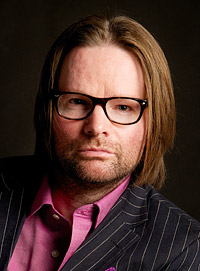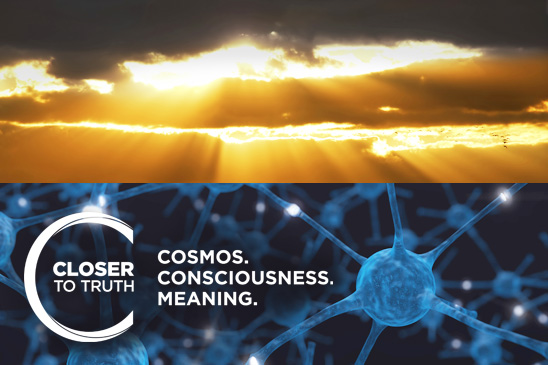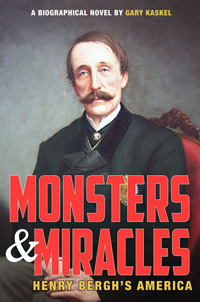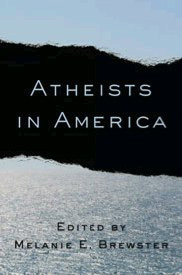In this week’s eSkeptic:
Dr. Kevin Dutton, on Demand
The Wisdom of Psychopaths: What Saints, Spies, and Serial Killers Can Teach Us About Success
University of Oxford research psychologist Dr. Kevin Dutton reveals that there is a scale of “madness” along which we all sit. Incorporating the latest advances in brain scanning and neuroscience, Dutton demonstrates that the brilliant neurosurgeon who lacks empathy has more in common with a Ted Bundy who kills for pleasure than we may wish to admit, and that a mugger in a dimly lit parking lot may well, in fact, have the same nerveless poise as a titan of industry. Dutton argues that there are “functional psychopaths” among us—different from their murderous counterparts—who use their detached, unflinching, and charismatic personalities to succeed in mainstream society, and that shockingly, in some fields, the more “psychopathic” people are, the more likely they are to succeed. Dutton deconstructs this often misunderstood diagnosis through bold on-the-ground reporting and original scientific research as he mingles with the criminally insane in a high-security ward, shares a drink with one of the world’s most successful con artists, and undergoes transcranial magnetic stimulation to discover firsthand exactly how it feels to see through the eyes of a psychopath.
Rent this video for only $3.95 or
Watch the entire series for $49.
INSTRUCTIONS: Click the button above, then click the RENT ONE button on the page that will open in your Internet browser. You will then be asked to login to your Vimeo account (or create a free account). Once you complete your purchase of the video rental, you will then be able to instantly stream the video to your computer, smartphone, or tablet, and watch it for the rental period. Videos play best on Vimeo when you allow the entire video to buffer before viewing it.
Explore the New CloserToTruth.com
Closer To Truth gives you access to the world’s greatest thinkers exploring humanity’s deepest questions. Discover the fundamental issues of existence. Enjoy new ways of thinking. Appreciate diverse views. Witness intense debates. Express your own opinions. Seek your own answers. Get smarter.
Closer To Truth is the definitive resource for Cosmos, Consciousness and Meaning, a global journey in search of the vital ideas of existence featuring leading scientists, philosophers and creative thinkers.
It is the mission of Closer To Truth to become the most publicly prominent venue for heightened understanding and thoughtful discussion of Cosmos, Consciousness and Meaning for broad television and online audiences.
COSMOS — cosmology, universe, multiverse, beginning of universe, far future of universe, end of universe, quantum physics, time, information, complexity, emergence, fine-tuning, metaphysics, nature of physical laws, philosophy of cosmology, philosophy of physics, science & religion, existence, what things exist, why anything at all, critical thinking, etc.
CONSCIOUSNESS — mystery of consciousness, essence of consciousness, mind-body problems, brain/mind, brain function, mental activities, subconscious, free will, persons and selves, personal identity, altered states of consciousness, what things are conscious, souls, life after death, alien intelligence, parapsychology, cosmos & consciousness, physicalism vs nonphysicalism, belief systems, critical thinking, etc.
MEANING — philosophy of religion, philosophical theology, theism, atheism, agnosticism, ideas of God, proofs of God, disproofs of God, attributes of God, problems of God, alternative concepts of God, God and time, eschatology, judgment, afterlife, purpose in the cosmos, search for meaning, meaning of life, critical thinking, etc.
The completely updated and revamped Closer To Truth website features HTML5-based design for full compatibility with all mobile and tablet devices, including better navigation and search features, which allow you to easily find your favourite Closer To Truth content. You can connect with Closer To Truth on Facebook, Twitter, Pinterest, tumblr, Instagram, LinkedIn, and Google+.

The Most Famous American You’ve Never Heard Of
SKEPTICALITY EPISODE 234
This week on Skepticality, Derek talks with Gary Kaskel, film maker turned animal protection advocate. Gary’s latest book, Monsters and Miracles: Henry Bergh’s America, is a biographical look into Henry Bergh, a man who founded two social justice organizations directly after the United States Civil War. Almost everyone has heard of the ASPCA and about the same number of people also believe that children should be protected and have the right not to be treated as property. However, what most people don’t know is that both of those things were pushed to the forefront of public understanding due to one man, Henry Bergh. Find out more about the man who can be easily called ‘The most famous American you’ve never heard of.’
About this week’s eSkeptic
In this week’s eSkeptic, Sigfried Gold reviews Atheists in America, edited by Melanie E. Brewster. (Columbia University Press. ISBN: 978-0231163583)
Sigfried Gold writes and speaks about spirituality, atheism, ethics, recovery, and the spiritual challenges and opportunities faced by religious outsiders and skeptics. Writing by and about him is available at tailoredbeliefs.com. He has Master’s degrees in Creative Writing and Biomedical Informatics and makes a living designing and building interactive information visualization tools that allow researchers to explore and make sense of complex data. He lives with his wife and two kids in Washington, DC and tweets occasionally at @godforatheists.
Share this article with friends online.
Subscribe | Donate | Watch Lectures | Shop
Coming Out Skeptical
by Sigfried Gold
How do we imagine atheists? What images, what feelings, what associations come to mind when we think “atheist”?
Melanie E. Brewster’s Atheists in America presents 27 first-person “coming out stories” garnered through a national solicitation, giving us something like actual faces to tie to the label atheist—much welcome for anyone who wants to go beyond polemics and think about atheists as people. Dr. Brewster is a professor of Counseling Psychology at Columbia University and her book seeks to redress the extreme paucity of academic research (1,200 peer reviewed articles related to atheism compared to 480,000 on religiosity and spirituality in general) by presenting “personal narratives that will illustrate how people from different cultures, religious backgrounds, cities, ages, sexual orientations, and family structures have reached their identities as atheist.”
Brewster’s commentary makes clear a political agenda in addition to this academic aim: she wants to establish atheists as a stigmatized, marginalized identity group alongside other such groups in the “broader multicultural and social justice discourse.” Beyond framing these as coming out stories (and the obvious reference to Angels in America in the title), she draws parallels between atheism and LBGTQ identity in terms of marginalization and the issues faced in disclosure and closeting.
Many of the stories are of people who came from dogmatically religious families and communities, people who had to fight hard against internal conditioning and external pressures and coercion before they could emerge as atheists. The majority of the stories take place in the Bible Belt or other conservative parts of the country. Atheism seems to frequently accompany the awakening of liberal political consciousness. I’m not well-versed in the demographics, but suspect a significant subset of atheists are politically conservative libertarians, sometimes even Republicans; atheists like that don’t seem to appear in the book much if at all. There are also only a handful of stories from blue electoral districts. Brewster did intend to show a cross-section of American atheists. I wish I had a better sense of just how representative her sample is.
Most of the stories speak powerfully to the marginalization and isolation atheists feel in religious families and church communities, in small towns, even in secular workplaces. The stigma attached to atheism for many of these writers turns the process of questioning religious dogma into a long, painful ordeal, fraught with doubt, fear and the disapproval of loved ones.
Between the stories and the commentary we do get a picture of atheist identities, how they are formed, and the obstacles they face. But for all the valuable work this book does, it raises, in my mind at least, a host of questions that are never explicitly asked, much less answered, in the book itself:
- What kinds of experience push a person over the edge from not believing to positively identifying as an atheist? The book does address the question of how people decide to come out of the closet once they have taken on the label internally, but the Pew Nones on the Rise report and other sources suggest that those who identify (in or out of the closet) as atheist are a small tip on the iceberg of those who don’t believe.
- What causes those who do identify as atheists to take the further step of seeking out atheist or humanist communities? Strangely, the stories say almost nothing about the writers’ participation in these communities; but I assume a good portion of them do participate or, otherwise, how would they have come across Dr. Brewster’s solicitation for submissions? And for those who do participate, how do these communities meet or fail to meet the various needs met by faith communities?
- In only one of the stories does the writer express a heartfelt sense of loss at leaving a religious community. The religious communities most of the authors emerged from sound singularly awful. Taken together, the stories reinforce my sense that the tone and stridency of a given person’s atheism, the self-righteousness of his claims to rationality, the virulence of her opposition to religion, is strongly reflective of the religious style of the family or community he or she emerged from. But is this conjecture just a bit of facile folk-psychology? It would be nice to see a book like Atheists in America address it head on and debunk it if it’s insupportable.
- What do people lose—beyond inclusion and social standing—when they leave their religion? Several authors give cursory nods to humanistic values, their appreciation of the natural world, and the sense of freedom and self-determination that opens up when they let go of religious dogma; but have they also lost access to valuable spiritual tools? Most of these writers did not experience particularly good versions of their religions, so maybe not. Still, the recent appearance of godless congregations or atheist churches make one wonder what these “secularizing exits” leave behind.
Despite these questions, I urge you to read this book. The stories are mostly well-written. Others are interesting in themselves for offering an unvarnished view of some of “our” less appealing qualities. It’s helpful to hear these voices outside the context of heated polemic or reasoned argument; to hear what emerges when an atheist is just telling her own story. We get unguarded expressions of the writers’ intransigent rejection of others’ beliefs, glimpses of an injured, defensive grandiosity, but we also see genuine empathy and efforts to connect with others, to live openly and harmoniously with people of all beliefs. These stories are sufficiently varied to provide a base of source material from which to begin addressing vital questions around belief, unbelief and the space between. Atheists in America offers a forceful provocation to other scholars, researchers and journalists to explore these questions.
More importantly, I am eager to see how non-academic readers respond to this book. Will it act in the revolutionary way that the appearance of gay and lesbian coming out stories have since the 1970s? Will it give closeted atheists a mirror in which to recognize themselves? I personally know few atheists whose unbelief grew out of the hostile soil of an evangelical landscape, but now that I am aware of their prevalence, I hope these stories can reach and encourage others struggling to shape their own ideas. ![]()















